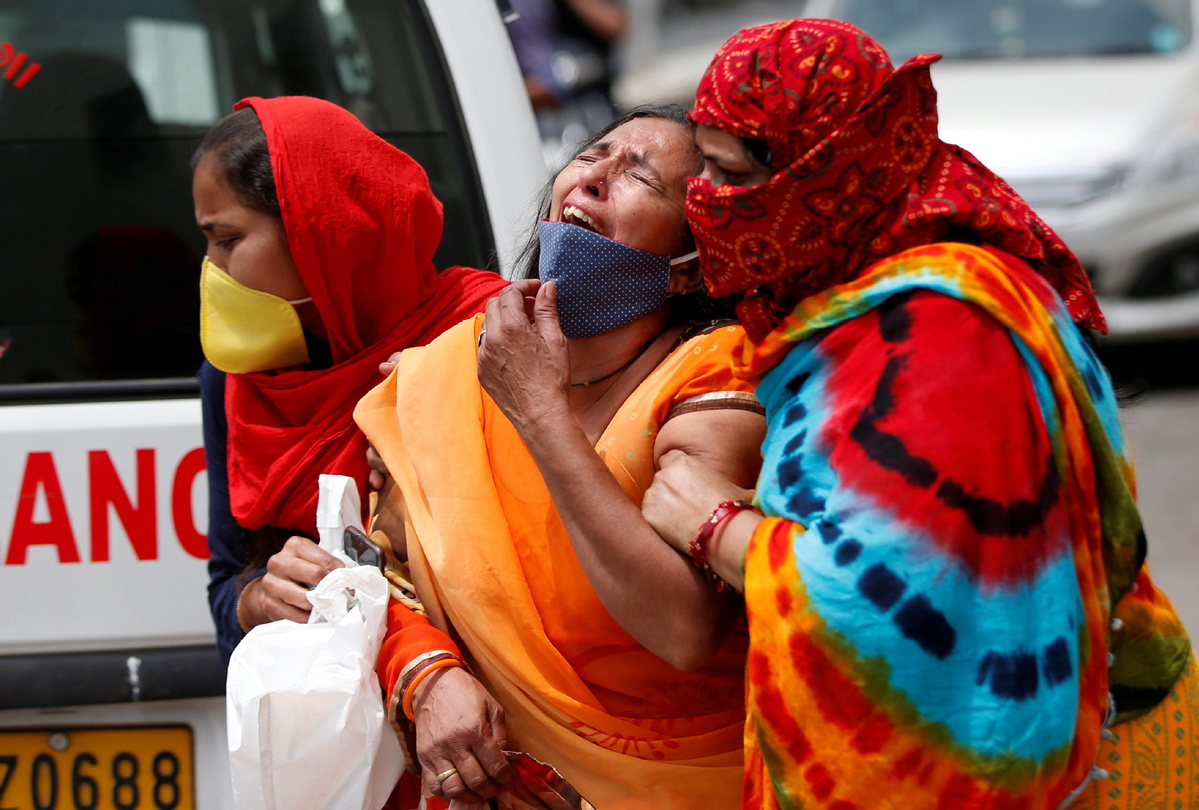India logs record jump in virus cases


India posted a global record of almost 315,000 new COVID-19 infections on Thursday as hospitals in New Delhi sent out desperate warnings scores of patients could perish without fresh oxygen supplies.
The country's long-underfunded healthcare system is being stretched to the breaking point by a devastating second wave of the pandemic blamed on a "double mutant" variant and "super-spreader" mass gatherings.
Health Ministry data on Thursday showed 314,835 new infections in the past 24 hours, the most of any country since the pandemic began, taking total cases to 15.9 million, the world's second highest.
There were 2,074 fatalities, lifting the total death toll to almost 185,000.
Despite the worsening situation, Prime Minister Narendra Modi voiced reluctance in a televised address on Tuesday to impose another round of national lockdowns.
A lockdown should be used only as a "last resort", Modi insisted, saying the adverse impact on the livelihood of people must be minimal.
But major private and government-run hospitals in New Delhi have sent out urgent appeals to the central government, calling for more oxygen supplies for hundreds of patients on ventilator support.
Nearly 500 tons of oxygen was supplied to New Delhi on Wednesday but this fell well short of the required 700 tons per day.
The capital city's government, run by a different party to Modi's national administration, accused neighboring states governed by Modi's BJP of holding up supplies.
Late on Wednesday, the Delhi High Court ordered the government to ensure safe passage of oxygen supplies from factories to hospitals across India.
"You beg, borrow and steal but have to provide," the judges said, asking why the government is "not waking up to the gravity of the situation".
"In the last few days there has been a mad scramble for oxygen. One hospital or the other is running short," Delhi Chief Minister Arvind Kejriwal said on Thursday.
Exorbitant rates
In Kolkata, the city is "facing an acute shortage of hospital beds", said Kunar Sarkar, senior vice-chairman of Medica Superspeciality Hospital.
"Beds with oxygen supply are filling fast. Reports are pouring in that at least 100 people are waiting at every hospital in the city," he said.
Some relatives were forced to pay exorbitant rates on the black market for medicines and oxygen, Agence France-Presse reported.
Recent months have also seen mass gatherings in India, including millions attending the Kumbh Mela religious festival, political rallies, lavish weddings and cricket matches packed with spectators.
"The government has been caught with its pants down," said Navneet Singh, 38, a call center executive.
Now, states across India have imposed restrictions, with Delhi in a weeklong lockdown, all nonessential shops shut in Maharashtra, and Uttar Pradesh set for a weekend shutdown.
Production of key coronavirus drugs slowed or was even halted in early 2021 at some factories and there were delays inviting bids for oxygen generation plants, local media reported.
The United States now advises against travel to India, even for those fully vaccinated, while Britain has put India on its "red list". Hong Kong and New Zealand have banned flights.
Australia on Thursday tightened restrictions on arrivals from India, with Prime Minister Scott Morrison saying returnees from India now made up about 40 percent of COVID-19 cases detected in quarantine.
India's inoculation program has hit supply hurdles, prompting New Delhi to put the brakes on exports of the AstraZeneca shot, which is manufactured locally by the Serum Institute.
India has administered more than 130 million shots so far and from May 1, all adults will be eligible for a jab.
Agencies and Arunava Das in Kolkata, India, contributed to this story.

































